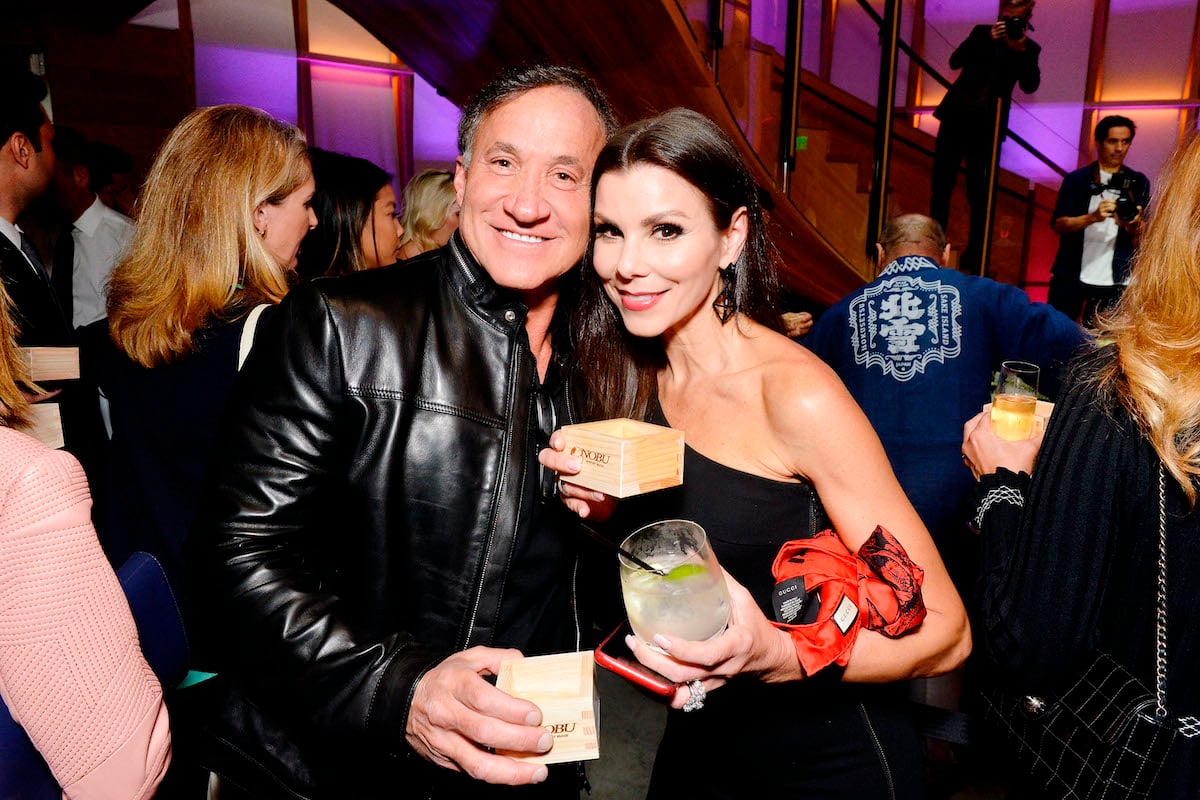Heather and Terry Dubrow Open Up About Parenting Challenges During a Pandemic
Although they are reality television stars, Heather and Terry Dubrow from The Real Housewives of Orange County and Botched have the same worries and concerns during the pandemic as other parents.

The couple opened up about the challenges they’ve faced as they try to balance their children’s safety with finding some sense of normalcy for them.
“This is a really difficult subject,” Terry admitted to Showbiz Cheat Sheet. “This is a really difficult thing to navigate because they’re kids. They want to hang out with their friends. But they are all sort of COVID deniers.”
“Let’s face it when you are under [age] 20, they sort of don’t really believe it exists, and they’re afraid of infecting their parents, their grandparents,” Terry continued. “But at the end of the day, they’re not seeing anybody get sick. They’re not really hearing of young kids getting sick.”
The family went from a hard lockdown to quarantine pods
Fans likely know Terry as the plastic surgeon from the series Botched. Given his medical background, the family took the pandemic extremely seriously from the beginning.
“It’s very difficult,” Heather agreed. “Obviously when we went on lockdown, we went on lockdown. Terry was home for 10 weeks! He’s never been home that long.”
As the pandemic continued and lockdowns lifted, the family was still cautious. “For the kids you worry obviously about their health and safety number one priority,” Heather continued. “But the number two priority is their mental health. Even though they are very good on social media, the no human contact with their peers is so difficult.”
She recalled going from extreme lockdown where no one was seeing anyone for a few months to gradually building quarantine pods with other families. Heather said initially she a little more lenient. “But when things started to take a dive again, we locked everyone up again, and now they have certain pods of friends that they’re allowed to hang out with,” she explained. The Dubrows have four children. Their family includes daughter Max and twin brother Nicholas who are 16, along with daughters 13-year-old Katarina and nine-year-old Collette.
Quarantine pods help while the kids navigate distance learning
“That’s not perfect either but I feel like at least we’re balancing and like every parent out there, we’re just doing the best we can,” Heather shared. Heather also addressed how to balance safety and fun for kids on her podcast, Heather Dubrow’s World.
Terry described what he considers to be a quarantine pod. “It’s like family-adjacent pods,” he explained. “In other words, it’s a group of their friends that we feel at least somewhat confident and we know their families. They’re practicing sort of pseudo-quarantining among their family-adjacent pods. And although that’s not perfect, I think it’s the most you can ask for at least some semblance of control and risk mitigation.”
Heather added that her children will be going back to school online so the pods will be vital to allow the children to have some contact with their friends. “I feel like if we can continue with our pod in a safe way, they could have some sort of peer-to-peer interaction after school in the afternoon after being on a screen all day long. We’re gonna keep trying to do that.”
Heather and Terry Dubrow reached out to help the Navajo Nation
Terry and Heather are also actively helping other communities deal with the pandemic. Most recently, they donated thousands of bottles of hand sanitizer and monetary contributions to United Natives through Dr. Michelle Tom, a Navajo family medicine physician working on the front lines of the Navajo Nation.
“During the pandemic as it started peaking, we read about Dr. Michelle Tom and we were just blown away,” Heather said. “We had no idea how bad it was on the reservation. There’s no running water.” The Dubrows donated special biological hand sanitizer that provides extended protection and hopes to bring more awareness to the unique struggles within the community.


